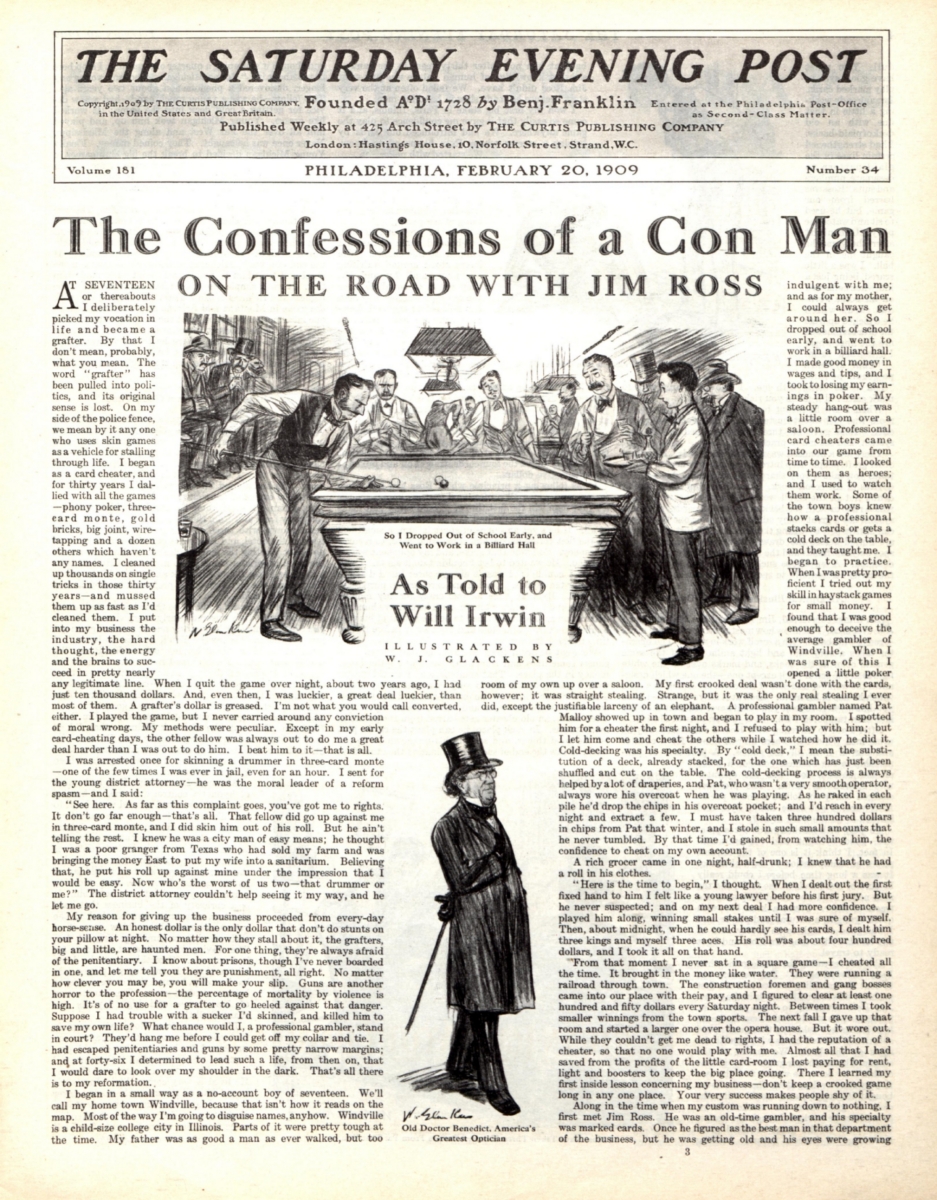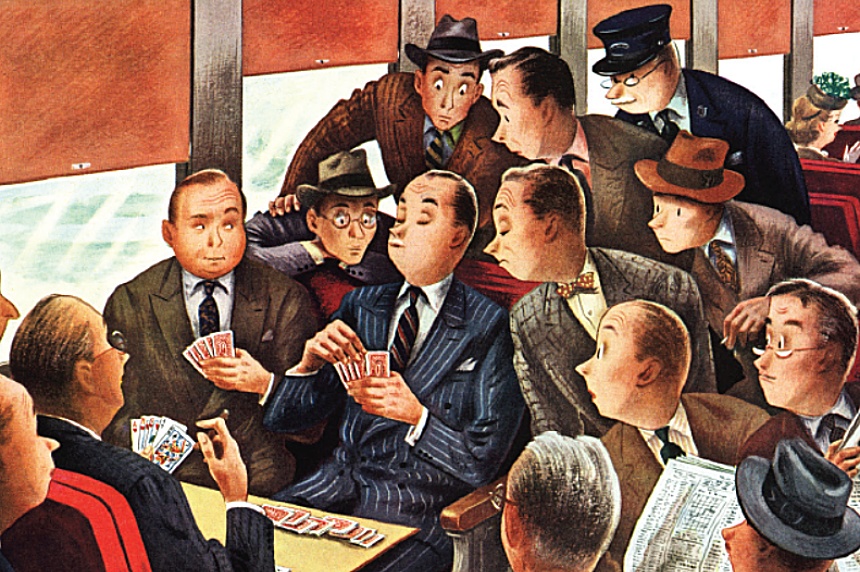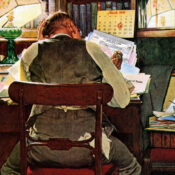–From “Confessions of a Con Man, As Told to Will Irwin,” in the February 20, 1909, issue of The Saturday Evening Post
A rich grocer came in one night, half-drunk; I knew that he had a roll in his clothes. “Here is the time to begin,” I thought. When I dealt out the first rigged hand to him I felt like a young lawyer before his first jury. But he never suspected; and on my next deal I had more confidence. I played him along, winning small stakes until I was sure of myself. Then, about midnight, when he could hardly see his cards, I dealt him three kings and myself three aces. His roll was about $400, and I took it all on that hand. From that moment I never sat in a square game—I cheated all the time. It brought in the money like water.
To play with marked cards takes practice, good eyesight and concentration. In fact, I think it is one of the hardest pieces of manipulation in card cheating. It was a long time before I could really be sure of two hands at the table, and the man never lived who could keep accurate track of three.
[One night] when I was about a $200 winner, some of the losers quit and broke up the game. I had marked a traveling salesman as the good thing of the party. When he proposed to me a two-handed game of casino I jumped at the chance. The losers stood around watching our play, and, by and by, they began to squabble over the question whether any man can tell, before the final show-down, the last four cards in a casino hand. You know the best casino experts say that they can do it. I was no casino expert, but there I sat with a marked deck which I could read from the back as well as from the face. I spoke up and said: “That ain’t very hard. I think I can do it.”
My opponent was getting a little drunk. He laughed at me and said: “Kid, here’s $25 that says you can’t!” I covered his money; I dealt, and we played down to the last four cards. Then I studied and figured and studied; and finally I identified the four cards straight off and pulled in the $25.
I was following a principle which all professional grafters know. Never let your man win the first throw. You’d think that making him win would be the best way of leading him on. Not at all. If he’s got an ounce of sport in him, a small loss on the first throw makes him come back hard, to recover his money.
So I won that stake, and my opponent wasn’t satisfied. He wanted to bet I couldn’t do it again. I said maybe I couldn’t; I wasn’t always sure; but I’d try it again for $10. I called one card wrong, purposely, and lost. By that time he was crazy for my money. Winning and losing, I led him on until he had $500 down. As that seemed to be the extent of his pile, I called the turn. I got away before he had time to think it over.
I have come, through experience, to be superstitious about one thing: a great, big stake will always slip through my fingers.
I began to notice this at Hot Springs. The president of an Eastern flour company came into town on a tear, throwing his money right and left. One of my gambling houses telephoned to me; they had him playing, and he was half-drunk. I worked the stacked deck on him all that night. I won $350 in cash and his check for $8,000. I went feeling great.
But the gambling-houses were squabbling among themselves; my boss, whom we’ll call Finnigan, had a quarrel with a rival whom we’ll call Jones. The news of my killing got around that night. Jones, for revenge, telephoned to my sucker first thing in the morning, telling him that he had been cheated. The flour man had the check stopped. The same identical thing happened in the case of a young Englishman, holder of a minor title, whom I beat out of $5,000 with marked cards.
My last regular partner in card cheating was Slippery Sills, with whom I’d done a turn here and there ever since I broke in. Slippery had the nerve of the damned. They tell this story of him: A little gambling-house in Missouri kept posted on the wall an offer of a silk hat for every straight flush.
Let me tell you, a straight flush is an uncommon hand in poker. In all my experiences I’ve never known one to be held on the square. Well, Slippery was playing marked decks there one night. He cleaned out every one in the place. I guess they knew he was a cheater, but the principle of that house was to let a man go for one sitting, and bar him afterward. When everyone had enough, Slippery looked up and saw that sign. “Let’s play a sociable game for a 25¢ limit,” he said; “I need a silk hat.” On the second hand he showed a straight flush. Inside of an hour he had won eight silk hats on eight straight flushes and no one could tell how he did it.

This article is featured in the January/February 2022 issue of The Saturday Evening Post. Subscribe to the magazine for more art, inspiring stories, fiction, humor, and features from our archives.
Featured image: Commuter Card Game, Constantin Alajálov, March 15, 1947, ©SEPS
Become a Saturday Evening Post member and enjoy unlimited access. Subscribe now



